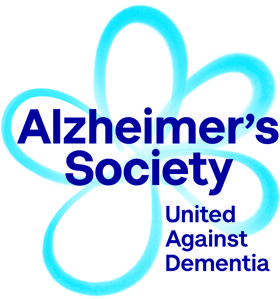The Health Risks of Loneliness and How Right at Home Camden, Hampstead & Golders Green Can Support You and Your Loved Ones

Published: 04/03/2023
The Health Risks of Loneliness
Loneliness is more than just an emotional experience – it can have a serious impact on both our physical and mental health. In fact, studies have found that it’s as important to consider your social health as it is your physical health.
Research has revealed that loneliness is linked to higher rates of depression, anxiety, and suicide. It has also been associated with an increased risk for heart disease, stroke, diabetes, cancer and other chronic illnesses.
What is loneliness?
Loneliness is a complex emotional experience that can have both physical and mental health implications. It can be broken down into three main types of loneliness: social, emotional, and existential.
- Social loneliness is the feeling of not having anyone to turn to in times of need and not feeling connected with others. This type of loneliness is often felt by people who are new to an area, don’t have many close friends or family members nearby, or feel like they don’t fit in with the groups of people around them.
- Emotional loneliness is feeling disconnected from your own emotions. People who struggle with this type of loneliness may be unable to express their feelings and can end up feeling isolated and disconnected.
- Existential loneliness is the feeling of being alone in the world and not having a real purpose or direction. This type of loneliness can lead to feelings of hopelessness and apathy.

Why is Loneliness bad for us?
For one thing, being lonely affects the body’s ability to regulate stress hormones like cortisol and adrenaline. This leads to inflammation in the body which can cause a range of health issues such as high blood pressure and weakened immunity. Furthermore, prolonged loneliness tends to lead to sedentary behaviour which further increases the risk of numerous diseases and conditions.
What can be done to combat Loneliness?
The good news is that loneliness can be addressed and prevented in many different ways.
- By connecting with others you can combat feelings of isolation and create positive connections that support good mental health
- Reach out via social media or even face-to-face if possible; spending time with friends or family can help reduce loneliness significantly.
- Staying active through exercise can boost mood and reduce stress hormones. For example, you could try joining a local gym or sports club creates an opportunity for socializing while improving physical wellness too.
- Volunteering is a great way to combat loneliness, as you can give back to your community and connect with other like-minded individuals.
- Finally, talking to a therapist or counsellor can help you gain insight into the causes of your loneliness and develop skills for managing it.
If you or someone you know is feeling lonely, don't hesitate to reach out for help from friends/family or contact a professional organisation who are there to provide advice and counselling. Remember—when it comes to our well being there’s no substitute for human connection. Often, all you need to do to get this connection is to reach out and ask.
How can a live-in carer help with loneliness?
Elderly people and those with disabilities often feel isolated and cut off from their community. This can lead to further mental and physical health issues as well as worsening symptoms of loneliness.
A live-in carer can help provide companionship and support for elderly or disabled individuals, helping them remain connected with their community. Additionally, the presence of a friendly and familiar face in the home can help encourage both physical activity and social interaction.
If you'd like to explore the possibility of introducing a live-in carer or even a simple companionship visit to your home, get in touch with our friendly team today. We care for people in Camden, Hampstead, Golders Green and surrounding areas.
Our friendly and supportive team can be reached by calling on 0203 921 1111 or by emailing us at camden.hampstead@rightathome.co.uk

